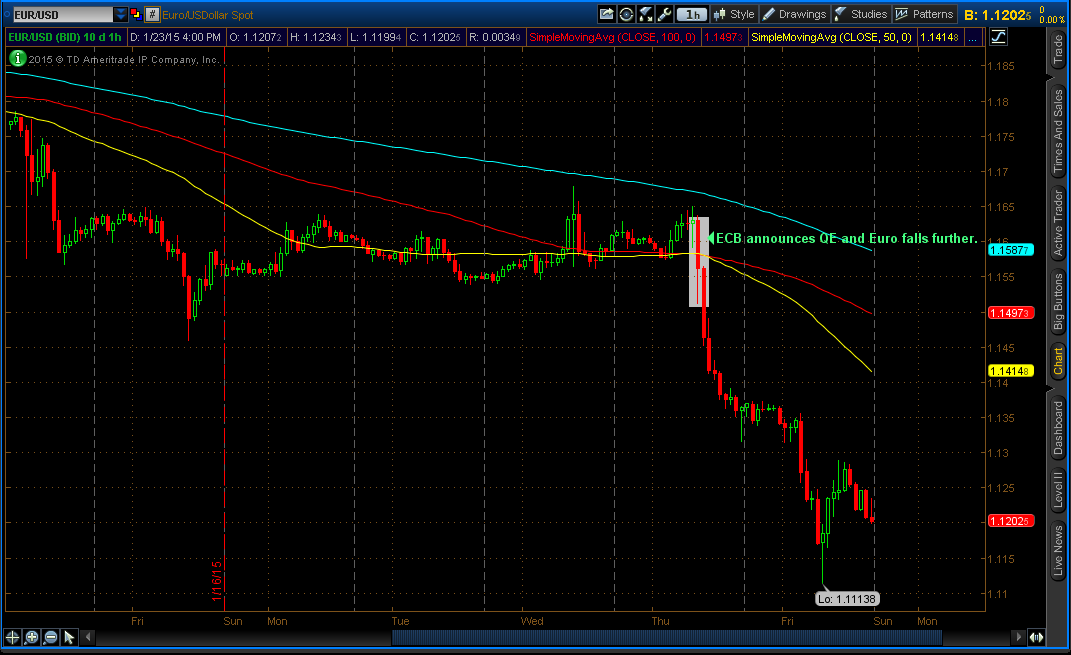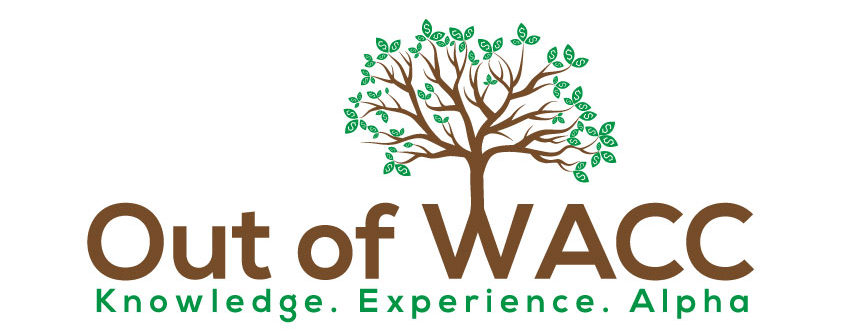On Thursday (January 22, 2015), European Central Bank (ECB) announced Quantitative Easing (QE) program. They left interest rates unchanged. During the press conference, ECB governor, Mario Draghi announced quantitative easing to the tune of €60 billion ($67.5 trillion) per month from March 2015 to September 2016 (19 months). The total amount sums to €1.1 trillion ($1.25 trillion). The day before, there was reports that ECB was going to announces €50 billion per month until year end. On Thursday, we found out the truth, €60B a month until 2016. During the press conference, Draghi said “…conducted until we see a sustained adjustment in the path of inflation which is consistent with our aim of achieving inflation rates below, but close to, 2% over the medium term.” He’s saying that QE program won’t end until they achieve their goal, inflation close to 2% but below.
The interest rates were left unchanged and it was not much market mover. But, during the press conference, when QE was announced, global markets were violent or should I say choppy?. European markets spiked, then dropped. By Friday (the day after QE was announced), European stocks hit 7-year highs. US markets rallied on Thursday. U.S markets rallied because more money are being pumped into U.S. However on Friday, U.S markets were mostly down because of worries that strong dollar will hurt U.S corporate earnings. Announcement of QE also knocked down euro to its knees. During the first 30 minutes of press conference (where QE was announced), EUR/USD was choppy. In the next 23 hours, EUR/USD fell all the way to 1.1113 (Friday 8 A.M EST) from around 1.1600 (post ECB conference), which is almost 500 pips in a day, actually 23 hours (from 9 A.M EST to 8. A.M EST).

Tomorrow, we will find out the results of Greek Elections. I believe Greece is going to stay in Euro-zone, which is going to give EUR some relief. Then, it will be a good place to sell EUR/USD because QE (Bearish) weights more than Greek staying in Euro-zone (Bullish). If Greece leaves Euro-zone, it’s another reason to be bearish on Euro currency.
Why did ECB announce QE?
ECB announced QE to fight back low euro-zone inflation. Many Euro-zone countries are close to deflation while some of them are already there. To boost the economy, ECB will print more money and increase the amount of money available to financial institutions.
There’s also a hope that QE will boost equity markets. When Bank of Japan (BoJ) announced expansion of a large monetary-stimulus program in October 31, 2014 Japan time, Japan stocks skyrocketed and Yen tumbled.
What’s great about a weaker euro? It benefits manufacturers and exporting nations. But, it can hurt international companies such as Cisco Systems, IMB, Pepsi, etc.
Unlike Swiss National Bank (SNB), announcement of QE by ECB was much anticipated. We all knew it was coming. Although I thought it was going to be limited for some time before full-blown QE kicks in. I thought ECB would hold off until February or March because of Greek elections. Anyway, QE is starting in a month or March.

